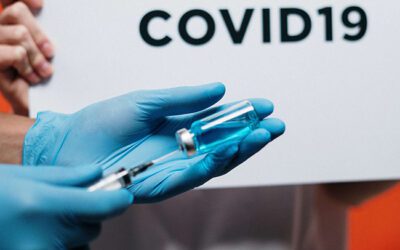 There is a lot of health information out there. Make sure you know what’s right for you.
There is a lot of health information out there. Make sure you know what’s right for you.
At AIM Health, we partner with our patients to tailor each person’s health needs with what makes sense for them as an individual. AIM Health physicians practice evidence-based medicine, consulting guidelines recommended by several different medical advisory panels particularly in matters of preventative health. We offer some of these guidelines below, however, as each patient’s needs are unique depending on their personal health history and the recommendations change over time, we recommend you consult your physician for your specific needs and use this guide only as a general reference.
*screening guideline resource: Johns Hopkins Medicine
General Health
It is recommended that women obtain a routine health visit every year. Annual visits with your physician help monitor potential concerns and can provide great guidance for staying healthy as you age. Find a partner you trust with whom you are willing to share. Studies have proven a great doctor-patient relationship can actually help improve one’s health and patients tend to become more actively involved in their own health because of their rapport with their doctor.
What to do?
- Annual routine medical exam
Blood Pressure
High blood pressure, or hypertension, is known as a silent killer in women because it can come on suddenly and has little or no symptoms. If left untreated it can lead to more serious conditions like heart attack or stroke. According to the American Heart Association and Go Red, risk factors for high blood pressure are mostly health and family history. That’s why it is important to remain active and to get your blood pressure checked often. It is typically done at any routine medical exam.
What to do?
- There are also basic recommendations depending on your current blood pressure:
- A clinical check every 2 years if blood pressure reading < 120/80 mm Hg,
or
- A clinical check yearly if systolic blood pressure reading of 120 to 139 mm Hg or diastolic blood pressure reading of 80 to 89 mm Hg
Breast Cancer
According to the Susan G Koman Foundation, in 2016, it is estimated that among U.S. women there will be 246,660 new cases of invasive breast cancer. Be sure to speak with your doctor about your risks.
What to do?
- Yearly mammograms and clinical breast exam
- Watch for changes in the breast including size, shape, pain, and color
Cervical Cancer
The American Cancer Society reports that cervical cancer is one of the most preventable and treatable cancers if detected early. Also, it is easily detected by a Pap test. These screening recommendations regarding pap smears generally apply to women with well functioning immune systems who have an intact cervix and a history of normal pap smears. Women in specific populations, for example, women who are immunocompromised, have had a total hysterectomy, have a history of abnormal pap smears, or have had exposure to diethylstilbestrol may have different screening recommendations. Come discuss your specific needs with an AIM health physician today.
What to do?
- Women between the ages of 30 and 65 should have a Pap test plus an HPV test (called “co-testing”) every 5 years. This is the preferred approach, but it is also acceptable to continue to have Pap tests alone every 3 years.
Obesity
Maintaining a healthy weight is more than cosmetic. Having too much body fat leads to health conditions like heart disease, diabetes and high blood pressure, as reported by the Mayo Clinic. The good news: even modest weight loss and regular exercise can provide healthier results.
What to do?
- Monitor weight regularly and have yearly exams with your physician.
- Adults with higher concentration of fat in their blood and other known risk factors for cardiovascular and diet-related chronic disease should obtain ongoing diet/nutrition counseling. Ask us how.
Come in to discuss the prevention and treatment of obesity with an AIM physician today.
Related Articles
COVID Vaccine Update: We Have Vaccines!
AIM Health now has the Moderna COVID Vaccine available for patients. Sign up through MyChart for clinics on April 22, 23, and May 20 and 21.
COVID Vaccine Update: Vaccine Locations
Here’s a complete listing of COVID vaccine locations in Oregon.
COVID Vaccine Update: Resources and Timeline
Here’s a new link for determining COVID vaccine eligibility and some detail on the timeline for February 2021.



